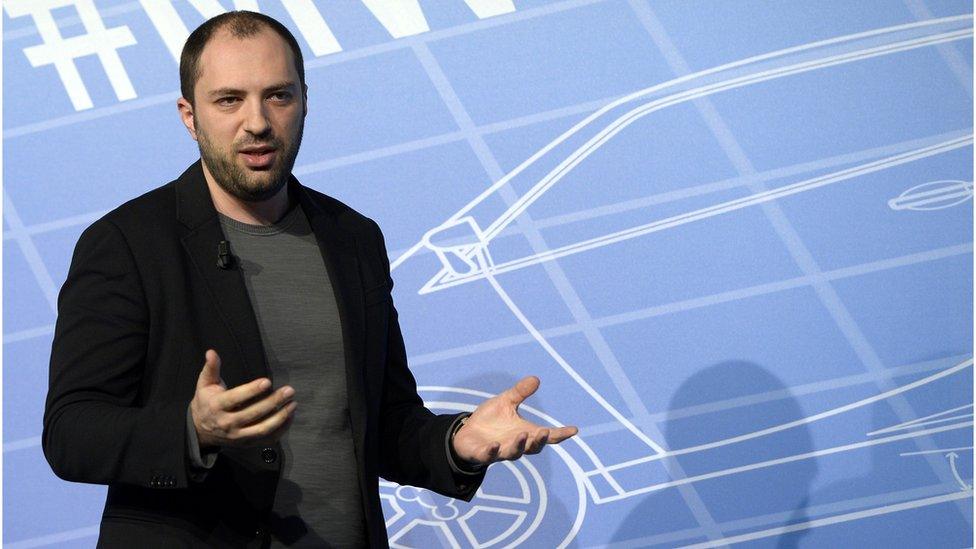WhatsApp boss and co-founder Jan Koum to quit
- Published

Jan Koum co-founded WhatsApp in 2009
WhatsApp chief executive Jan Koum is to quit the popular messaging service he co-founded.
In a post on Facebook, he said he was "taking some time off to do things I enjoy outside of technology".
However, according to a Washington Post report, external earlier on Monday, Mr Koum had clashed with parent company Facebook over WhatsApp's strategy.
He also objected to Facebook attempts to use WhatsApp's personal data and weaken its encryption standards.
In his statement Mr Koum said: "It's been almost a decade since Brian [Acton] and I started WhatsApp, and it's been an amazing journey with some of the best people. But it is time for me to move on.
"The team is stronger than ever and it'll continue to do amazing things... And I'll still be cheering WhatsApp on - just from the outside."
Stanford alumnus Brian Acton and Ukrainian immigrant Mr Koum co-founded WhatsApp in 2009, before selling it to Facebook in 2014 for $19bn (£13.8bn).
The pair had long prized the protection and independence of WhatsApp user data, and made preserving it a condition of the Facebook takeover.

WhatsApp is the largest messaging service in the world
However, their relationship with Facebook has soured recently, according to reports.
Mr Acton left the company in November and has joined other former executives in criticising Facebook. In March he endorsed the #deletefacebook social media campaign that took off after reports of Cambridge Analytica using Facebook's user data came to light.
Facebook has since revealed that the data of up to 87 million people was improperly shared with the consultancy and used for political purposes.
Both men were also said to oppose Facebook efforts to commercialise WhatsApp, which has no advertising.
According to the Washington Post, this included a Facebook plan to access the phone numbers of WhatsApp users along with other data.
Facebook has since been prevented from making use of UK citizens' WhatsApp data for purposes beyond the chat app itself.
Last year the EU also fined Facebook $122m for "providing incorrect or misleading information" about its intentions at the time of the WhatsApp acquisition.
Facebook chief executive Mark Zuckerberg commented on Mr Koum's post, saying he was grateful for what Mr Koum taught him about encryption "and its ability to take power from centralized systems and put it back in people's hands. Those values will always be at the heart of WhatsApp."
WhatsApp, with 1.5 billion monthly users, is the largest messaging service in the world.
Allow Facebook content?
This article contains content provided by Facebook. We ask for your permission before anything is loaded, as they may be using cookies and other technologies. You may want to read Meta’s Facebook cookie policy, external and privacy policy, external before accepting. To view this content choose ‘accept and continue’.
- Published14 March 2018

- Published21 March 2018

- Published25 April 2018
